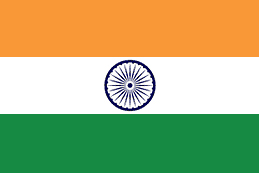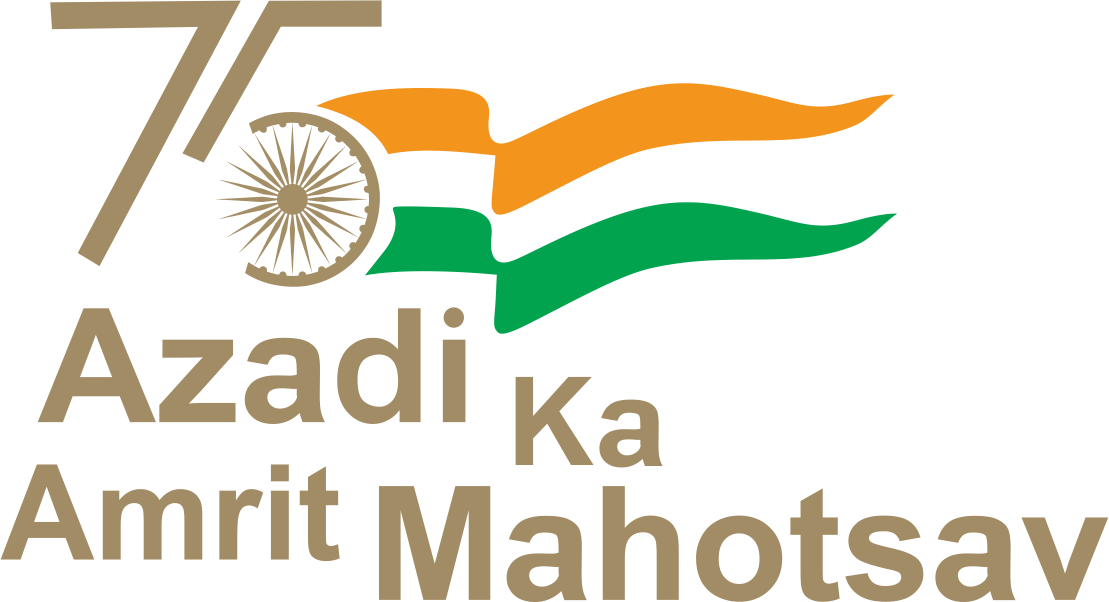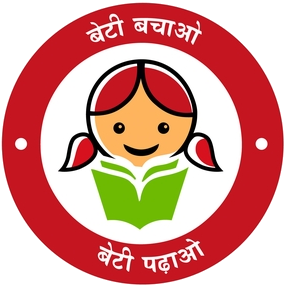Post Harvest Improvement Programme
POST HARVEST IMPROVEMENT PROGRAMMES FOR OTHER SPICES
Component | Objective & Scale of assistance |
Seed spice thresher | The harvesting and post-harvest practices followed in seed spices are unhygienic which results in contamination of the products with foreign matters like stalks, dirt, sand, stem bits etc. The seeds are separated by beating the harvested and dried plants with bamboo sticks or rubbing the plants manually by hand or trampling under the feet of the cattle. In order to educate the farmers and to avoid contamination in the final product, Board will introduce use of threshers which are operated manually as well as with power for separating the seeds from the dried plants. The cost of such a power and manual thresher are estimated as Rs.1.20 lakhs and Rs.40,000/- respectively. It is proposed to provide 50% of the cost aas subsidy subject to a maximum of Rs.60,000/- for a power thresher and Rs.20,000/- for a manually operated thresher. |
Pepper thresher | Traditionally pepper berries were separated from the spikes by trampling under the feet which is un-hygienic and labour intensive. The pepper threshers are mechanically operated, labour saving and separates berries in a hygienic way. Subsidy is offered @ 50% of the cost of the equipment subject to a maximum of Rs.15,000/- per thresher. |
Bamboo mats | In order to enable the growers to dry pepper under hygienic condition, the Board has been supplying bamboo mats of size 12’ x 6’ at 90% subsidy to tribal growers and 50% subsidy to others. The Board will arrange for centralized purchase of mats and supply to growers after collecting the non-subsidy portion. |
Turmeric boilers | Fresh turmeric is cured for obtaining dry turmeric. Curing involves boiling of fresh rhizomes in water and drying in the sun. Over cooking spoils the colour of the final product while undercooking renders the dried product brittle. In conventional curing where the rhizomes are boiled in copper or galvanised iron or earthen vessels there are chances for overcooking or undercooking. Improved scientific cooking involves using boilers and perforated trough made of GI of MS sheet extended with parallel handle. This ensures optimum cooking of turmeric, which provides better colour and quality to the final produce. Hence it is proposed to popularize the use of turmeric boilers among turmeric growers for production of quality turmeric suitable for exports. The cost of one such boiler is estimated at Rs.3,00,000/- for community use. Individual growers or groups are eligible to benefit under the scheme. 50% of the cost turmeric boiling unit subject to a maximum of Rs.1,50,000/- is offered as susbidy. |
Turmeric polisher | Dried turmeric has a poor appearance and rough dull colour outside the surface with scales and root bits. The appearance is improved by smoothening and polishing the outer surface by manual or mechanical rubbing. Manual polishing is done by rubbing the dried turmeric fingers on a hard surface or trampling them under feet by wrapping in gunny bags. Manual polishing is an unhygienic practice, which affects quality of the product. The improved method of polishing turmeric is by using hand operated / power operated polishers. This ensures hygienic and effective polishing which gives better appearance to the product. Hence it is proposed to popularize the practice of using improved polishers for polishing turmeric. The average cost of such a polishing machine is estimated as Rs.40,000/- for a capacity of 250-500 kg. 50 % of the cost of turmeric polisher subject to a maximum of Rs. 20000/- is provided as subsidy. |
Supply of IPM kits | Chilli is one of the major items in our export basket of spices. Indiscriminate use of pesticides has resulted in pesticide residues and detention of Indian chilli consignments in Australia, Spain and some other countries. The presences of pesticides have caused serious trade disruptions. Preventive measures are to be taken to keep pesticide residue within the permitted level to increase chilli exports from India. Under the programme IPM kits containing pheromone traps, bio agents like Trichoderma, Trichogramma, neem pesticides and seed worms of vermi-compost were supplied at an estimated cost of Rs.5000/- per ha to substitute the hazardous chemicals. 50% of the cost of the IPM kits or Rs.2500/- per ha is offered as subsidy |
Supply of polythene/silpauline sheets | Most of the importing countries have prescribed stringent quality standards for agro products including spices. These standards are becoming more and more stringent and are becoming effective trade barriers impacting spice exports. It is therefore necessary to educate, motivate and support the growers to adopt hygienic post-harvest practices to improve the quality of spices and to create a perception all over the world that India is a source of good quality spices In order to enable small and marginal farmers to dry spices under hygienic conditions, Board is supplying polythene sheets / silpauline sheets (of size 8 x 6 m, 250 GSM & 120 GSM respectively) at 50% subsidy to tribal growers and at 33.33% to other growers. Board will arrange for centralized purchase of polythene sheets and supply it to growers. The non-subsidy portion will be collected from the growers. |
Mint distillation unit | Distillation of mint oil is usually done as a on farm process. At present majority of the farmers are using field distillation units which are poor in fuel efficiency, take long time for distillation and give low recovery of oil with poor quality. Hence there is a need to popularise efficient and improved field distillation units. In order to encourage installation of improved field distillation units, it is proposed to provide 32.5% of the actual cost of improved distillation unit having a capacity range from 500 - 600 kg herbage per shift subject to a maximum of Rs.1.18 lakhs as subsidy. |
Pepper/clove ladders | Pepper grows to a height up to 30 feet and traditionally, harvesting has been done manually by using single bamboo pole. This is risky and laborious. At present, there is acute labour shortage in the pepper growing areas for harvesting pepper and also there is severe shortage in the availability of bamboo. Besides the bamboo poles are easily perishable. In view of the above, it is proposed to distribute ladders for harvesting pepper and clove. 50% of cost of ladder subject to a maximum fo Rs 5000/- is provided as subsidy. |
Spice cleaners/graders for pepper | The objective of the scheme is to popularize the mechanization of pepper cleaning and grading to improve the quality. Board will provide pepper cleaning/grading machines @ 50% assistance subject to a maximum of Rs 35,000/-. |
Spice slicing machine for ginger | The objective of the scheme is to motivate the growers to adopt slicing of ginger / turmeric before drying using simple slicing machines to improve the quality. Board will provide 50 % cost of the slicing machine as subsidy subject to a maximum of Rs.7000/- to the growers. |
Tamarind dehuller /nutmeg desheller | The objective of the scheme is to popularize nutmeg desheller / tamarind dehuller machines among the nutmeg / Tamarind farmers to reduce the labour cost as well as to improve the quality of the produce. Board will provide 50% of the cost of the equipment subject to a maximum of Rs.42500/- is provided as subsidy. |
Nutmeg driers | The main objective of the scheme is to popularize the drying of nutmeg / hygienically using dryers among the nutmeg farmers to produce quality nutmeg for exports. Board will provide 50% of cost of the drier subject to a maximum of Rs.30000/- as subsidy . |
Packing and storage unit for garlic | The objective of the scheme is to promote packing and storage facilities for garlic and improve quality of the produce for export. Board will provide 50% of the cost of equipments required for setting up of primary processing facilities and accessories for storage of garlic subject to a maximum of Rs. 5 lakhs as subsidy. No assistance will be given for construction of building purpose. |
Herbal spice extractors & Deydration units | The objective of the scheme is to promote primary processing facilities viz extraction / dehydration of the herbal spices in the herbal spice growing areas. It is proposed to provide 50% of cost of herbal spice extraction unit or dehydration unit subject to a maximum of Rs. 1.20 lakh per unit as subsidy. |
Dry/fresh ginger peeling & storage unit | The objective of the scheme is to improve the quality of ginger by promoting setting up of primary processing facilities for ginger in the growing areas. Board will provide 50% of the cost of equipments required for setting up of primary processing facilities and accessories for value addition and storage subject to a maximum of Rs. 5 lakhs per unit as subsidy. No assistance will be given for construction of building purpose. |
Seed spice cleaning & storage unit | The objective of the scheme is to set up primary processing facilities viz. threshing, cleaning, grading and storage of seed spices for export. Board will provide 50% of the cost of equipments required for setting up of primary processing facilities and accessories for storage subject to a maximum of Rs. 5 lakhs per unit as subsidy. No assistance will be given for construction of building purpose. |
Spice Washing Equipment | The objective of the scheme is to motivate the growers to adopt washing of spices after harvest by using washing equipments to improve quality of the produce for export. 50% cost of the equipment subject to a maximum of Rs.1.10 lakhs per unit is offered as subsidy. |
Method of operation/ Modus operandi
Interested growers will submit application in the prescribed format to the nearest office of Spices Board along with the following documents.
1. Land Tax receipt / RTC / Chitta adangal / Parcha copy or land possession certificate issued by village/local/revenue authority etc. in case of NE States
2.Voter I.D. copy/ Aadhar card/ Passport- copy
3. Bank Passbook First page - copy
4. Any other document felt to be verified by the concerned officer for ascertaining the possession of land by applicant/ beneficiary
- Quotation from the approved manufacturer.
6. In case of schemes applicable for groups/NGOS/Societies the following additional documents may also be furnished
a)Registration details
b) List of member growers in the group with area under spices
c) Documents to prove ownership of land and building viz. land tax receipt etc. where the unit is proposed to be installed. [If the unit is to be installed in the land / building of the one of the member grower, an agreement to use the building
between the group and the member grower has to be produced.
d) Copy of first page of the bank pass book of Growers Group / Women Groups / NGOs / SHGs /Spices Producers Societies, etc.
e) MoU to be executed with the Board after issue of permit order.
The Spices Board official will inspect each application andrecommend eligible subsidy to the Zonal Assistant Director/ Deputy Director, Regional office for sanction through Field Office Automation system. Sanctioned cases will be forwarded to Head office and the subsidy will be credited to the beneficiary account (core banking) through e-payment. ZonalAssistant Director/ Regional Deputy Director will test check recommendedcases at random.







